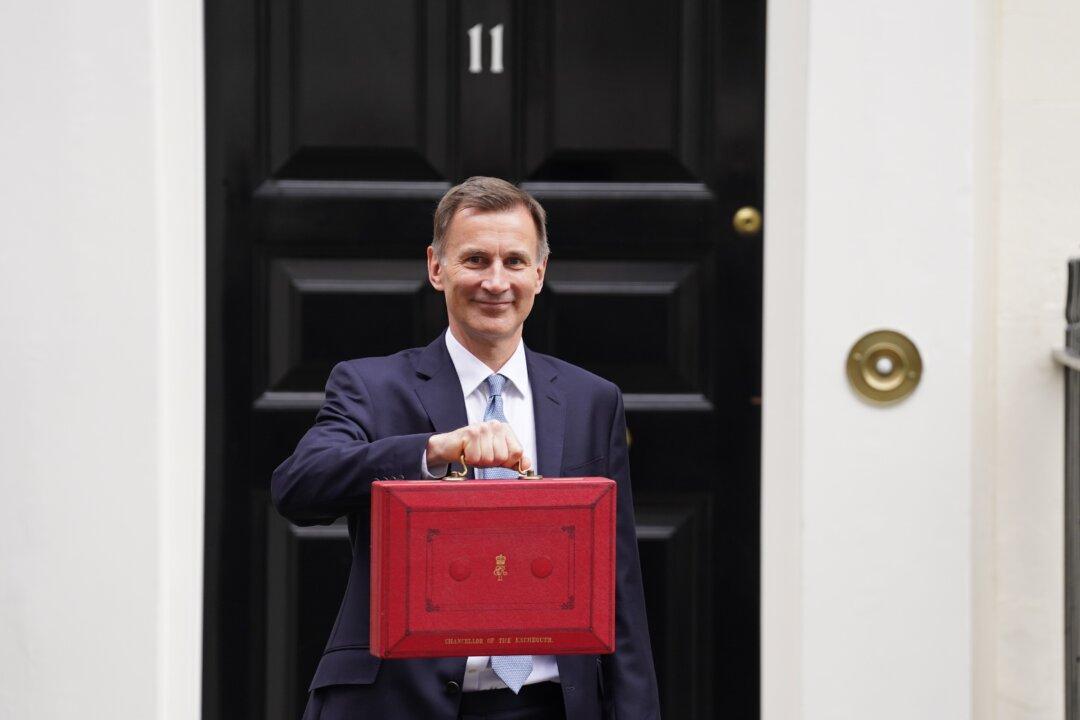The UK’s tax burden is on course to be the highest since the Second World War, the government’s official economic forecaster has said.
The tax burden is expected to reach a post-war high of 37.7 percent of GDP in 2027–28, according to the Office for Budget Responsibility (OBR).





